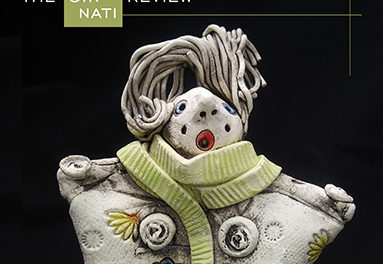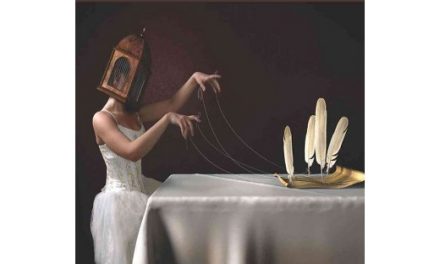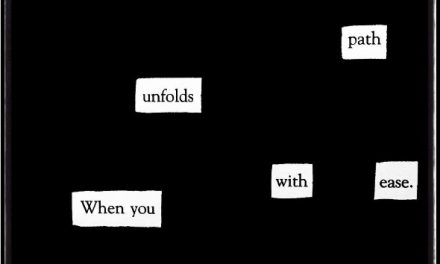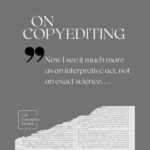 You know how sometimes you can tell something about a person just by looking at her? For example, the staff here at CR can tell you nine times out of ten what color a person’s hair is with little more than a prolonged glance (the tenth time we get tripped up by the nuances of shades—dirty blond? Dishwater blond? Dennis Rodman blond?). Anyway, here are some facts we’ve gleaned about CR volunteer Laura Thompson—all just by looking at her!
You know how sometimes you can tell something about a person just by looking at her? For example, the staff here at CR can tell you nine times out of ten what color a person’s hair is with little more than a prolonged glance (the tenth time we get tripped up by the nuances of shades—dirty blond? Dishwater blond? Dennis Rodman blond?). Anyway, here are some facts we’ve gleaned about CR volunteer Laura Thompson—all just by looking at her!
—She has, at some point, eaten a peanut butter sandwich for lunch.
—She’d rather write poetry than scour her bathtub.
—Having grown up near a dairy farm, she is a savvy evaluator of ice cream quality (she kind of hates to break it to you, but Edy’s isn’t as good as you think it is).
—She has some variety of blond hair (we think).
—She’s drawn to unusual pets, having once fostered a retired medical leech. Next up: a hedgehog (okay, this one she actually clued us in on—but it was on the tips of our tongues, we swear).
—She kindly wrote an appreciation of one of the poems from issue 8.2. Here it is:
Laura Thompson: Whenever I read a poem that explores a subject I know well, my expectations are twofold. First, I want the poem to confirm what I already know, demonstrating the poet’s knowledge and awareness. Second, I want the poem to tell me something I don’t know, revealing the poet’s unique insight and perspective. Catherine Arnold’s “Horse” fulfills on both counts.
 The poem contains many images that equestrians will find familiar: the “sweet, fermenting” aroma of the horse, the sensation of one’s legs pressing against “the warm moving back” and the “tightening and slackening” motion of the animal’s gait. The author also captures the emotion of a child’s first ride: her initial anxiety evolving into a sense of awe and empowerment.
The poem contains many images that equestrians will find familiar: the “sweet, fermenting” aroma of the horse, the sensation of one’s legs pressing against “the warm moving back” and the “tightening and slackening” motion of the animal’s gait. The author also captures the emotion of a child’s first ride: her initial anxiety evolving into a sense of awe and empowerment.
The poem, however, does not stop at the universal or generic. The riding scene becomes a means to explore identity and family dynamics. While most riders are shaky their first time in the saddle, the speaker feels off balance on the ground; when she mounts the horse, she is “already accustomed” to riding because she has “assumed it all,” imagining fully the physicality of the experience.
The speaker takes her first ride seated before her mother, who is “bracing” her body and making her feel “whole.” Meanwhile, her father is nearby, his deep-voiced presence providing both “weight” and “certainty.” The long lines and dramatic spacing illustrate the speaker’s discovery of the “strong unhurried length” of her own body, even as the poet skillfully, gracefully leads us to understand how becoming one with another creature can paradoxically help us define and secure our boundaries.










